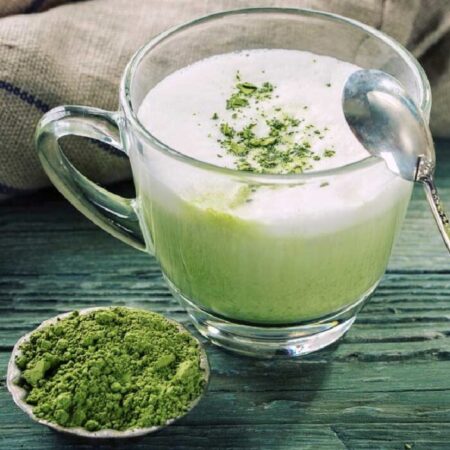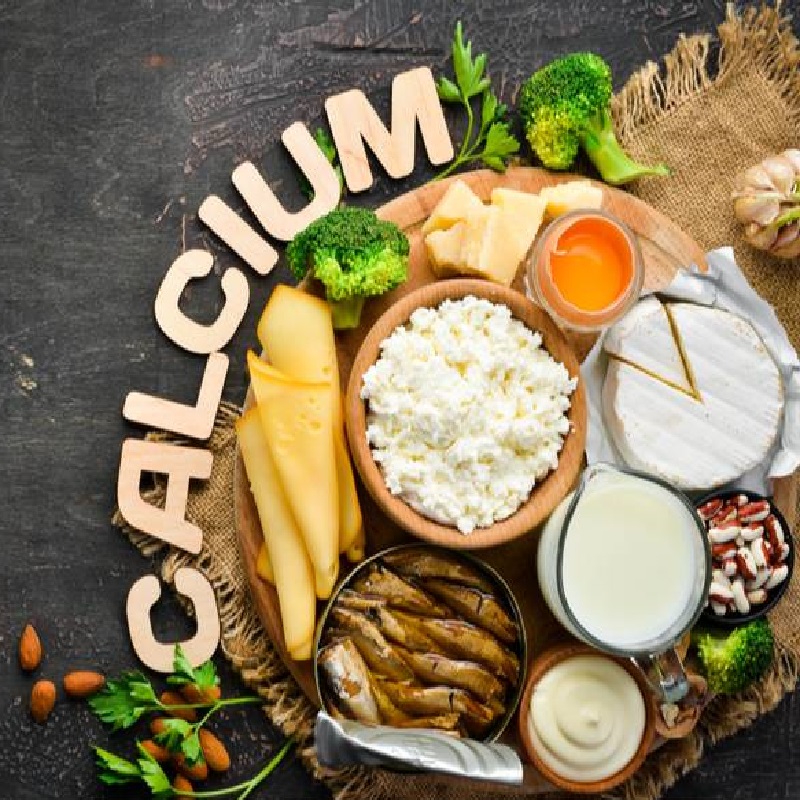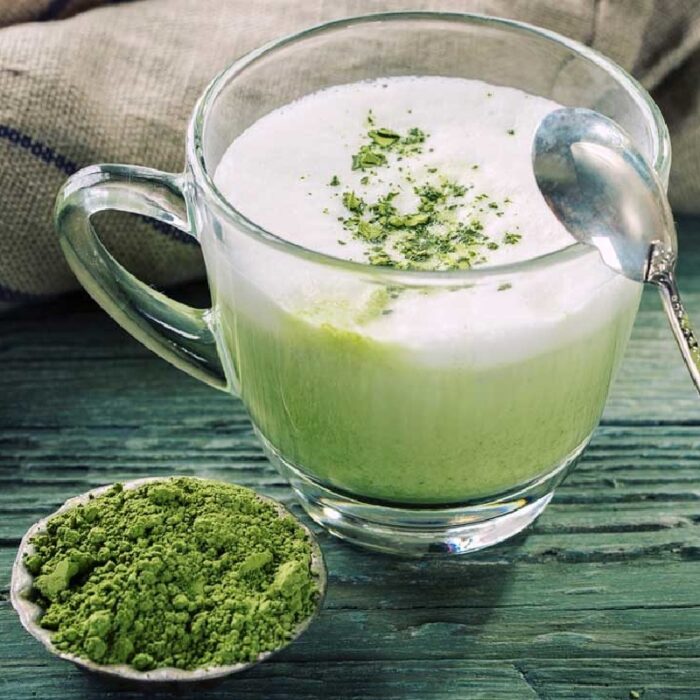Tilapia Fish – Benefits, Safety, And Recipes

Tilapia fish is a tasty and inexpensive source of protein (1). It is the second most farmed fish in the world and it originated in Africa and the Middle East. It started gaining global popularity after scientists unraveled its innumerable health benefits. Plus, it grows quickly and does not require fancy culture conditions. However, concerns regarding its fatty acid ratio and heavy metal poisoning have surfaced, and people want to know the truth. In this article, you will find science-backed health benefits of tilapia, recipes, and the answer to an important question – should you consume tilapia? Let’s begin!
Tilapia – A Brief Introduction

Tilapia belongs to the cichlid family. It is a freshwater fish that grows in ponds, rivers, lakes, and shallow streams at warm temperatures and has a mild taste. It resembles a sunfish and has lateral stripes and a long dorsal fin.
There are four commercial species of tilapia – Mozambique tilapia, Blue tilapia, Red tilapia, and Nile tilapia. The history of Nile tilapia can be traced back to ancient Egyptian culture.
Interestingly, tilapia was considered the symbol of rebirth. These days, it is cultured in farms, and hybrid fish are being produced to meet the increasing market demands. And they are often injected with growth hormones that may have a detrimental effect on humans. Let’s consider all the pros and cons Tilapia fish to come to a conclusion. Let’s begin with the nutrition facts.
Tilapia Nutrition Facts
Tilapia fish is loaded with protein, low in calories, and is a good source of vitamins and minerals. Take a look at its nutritional profile.
1 oz tilapia contains
- Calories – 36
- Protein – 7.3g
- Total Fat – 0.7g
- Polyunsaturated Fat – 0.11g
- Carbs – 0 grams
- Calcium – 3.9mg
- Magnesium – 9.5mg
- Potassium – 106mg
- Selenium – 15.2mg
- Vitamin E – 0.2mg
- Niacin – 1.3mg
- Folate – 1.7mcg
- Vitamin B12 – 0.5 mcg
- Pantothenic acid – 0.2mg
Now, let us see why tilapia gained popularity. What benefits does it have?
8 Health Benefits Of Tilapia
1. Good For The Bones
Tilapia fish is good for your bones. It contains minerals such as calcium and phosphorus that are needed for bone growth and maintenance. A few recent studies have shown that tilapia fish collagen type 1 is highly useful in regenerative medicine (2). It has shown promising results in aiding bone cell regeneration in the laboratory and can also be used as a scaffolding biomaterial in the dental field (3), (4).
2. Prevents Diseases Like Cancer
Like several other kinds of fish, tilapia contains selenium and antioxidants that fight cancer and treat heart-related diseases (5). Selenium reduces the free radical activity and makes you less prone to oxidative stress (6), (7). It inhibits the mutation of healthy cells to cancerous ones(8). Moreover, scientists have found that an antimicrobial peptide (short amino acid chain), hepcidin 1-5, has anti-inflammatory effects and can be used as a novel treatment for cancer (9).
3. Good For The Brain
Consuming tilapia can boost brain function as it contains omega-3s in abundance that increase neurological function and have neuroprotective properties (10). Tilapia is also loaded with selenium that is proven to protect the brain from various diseases like Alzheimer’s, Parkinson’s, and epilepsy (11). It increases the flow of oxygen to the brain, which helps in balancing fluids throughout the body. It not only deposits nutrients into the system but also boosts mental clarity.
4. Protects The Heart
Another health benefit of tilapia is that it takes good care of your heart. But mind you, it is wild tilapia that does this not the aquaculture tilapia that’s fed with chemicals and generally has an imbalanced omega-3 and omega-6 fatty acid ratio. Wild tilapias have more omega-3 fatty acids compared to the cultured ones (12). According to a recent study, omega-3s can help reduce high blood pressure and prevent heart attacks, strokes, and atherosclerosis (13) (14).
5. Fights Aging
Tilapia contains antioxidants and vitamin E that are good for the skin. They improve your complexion and make your skin radiant. Both the vitamins are potent antioxidants, which means they help scavenge the harmful free radicals, thereby helping reduce inflammation and stress. They also protect the skin from photodamage (skin damage caused by harmful UV rays). As a result your skin, bones, organs, and cells remain active and young (15).
6. Weight Loss
Tilapia, in conjunction with proper diet and exercise, can help boost weight loss efforts due to its high protein and low calorie content. It is very high in protein and very low in calories. It could be a great way to reduce the calorie intake and also provide your body with the nutrients it needs to function properly. It can also be a dietary option for those who are trying to get back into shape.
[ Read: 800 Calorie Diet Plan For Weight Loss ]
7. For Thyroid Patients
Tilapia contains selenium that plays an important role in the regulation of the thyroid gland and improves the hormonal functions as well (16). Regular functioning of the thyroid gland will make sure your metabolism is boosted and prevent weight gain/loss or any other disease related to a malfunctioning thyroid.
8. Heals Wounds
Scientists have found that marine collagen peptide from Nile tilapia showed significant progress in closing scratch wounds and flesh wounds in laboratory animals (17).
These are the mighty eight benefits of consuming tilapia fish. But how to prepare it? Here are a few Tilapia fish recipes to give you the general idea.
1. Baked Tilapia

- Prep Time: 10 mins
- Cooking Time: 30 mins
- Total Time: 40 mins
- Serves: 2
Ingredients
- 4 oz tilapia fillets
- 2 teaspoons olive oil
- 1 teaspoon unsalted butter
- 1 tablespoon lemon juice
- 1 cup broccoli
- 1 cup chopped carrot
- 1 teaspoon chili flakes
- Salt to taste
How To Prepare
- Preheat the oven to 135o F.
- Line the baking tray with parchment paper.
- Toss the tilapia fillets and veggies with olive oil, butter, lemon juice, salt, and chili flakes.
- Transfer them to the baking tray.
- Cover it and bake for 20-30 minutes.
2. Lemon Garlic Tilapia

- Prep Time: 10 mins
- Cooking Time: 30 mins
- Total Time: 40 mins
- Serves: 2
Ingredients
- 4 oz tilapia fillets
- 1 teaspoon butter
- 1 teaspoon finely chopped garlic
- 2 tablespoons lemon juice
- 1 tablespoon chopped parsley
- Salt to taste
- ½ teaspoon pepper
How To Prepare
- Preheat the oven to 135oF.
- Line the baking tray with parchment paper.
- Toss the tilapia fillets in lemon juice, salt, pepper, and garlic.
- Drizzle butter on top and top with parsley.
- Transfer the fillets to the baking tray.
- Cover it and bake for 20-30 minutes.
3. Tilapia Taco

- Prep Time: 10 mins
- Cooking Time: 30 mins
- Total Time: 40 mins
- Serves: 2
Ingredients
- 4 corn tortillas
- 4 tilapia fillets
- 2 tablespoons lime juice
- Salt to taste
- ½ teaspoon pepper
- ¼ teaspoon red chili flakes
- 1 teaspoon garlic powder
- ½ cup shredded cabbage
- ½ avocado, chopped
- 1 tomato, chopped
- ¼ cup chopped cucumber
- ½ cup grated cheese
- ½ cup yogurt
- Cilantro for garnish
- Cooking spray
How To Prepare
- Rub the tilapia fillets with lime juice, salt, pepper, and garlic powder.
- Spray the fillets with cooking spray and grill them, 5 minutes on each side.
- Heat the tortillas on a skillet.
- In the meanwhile, blend yogurt, cilantro, and chili flakes into a smooth sauce.
- Divide the grilled tilapia on the tortillas.
- Add salsa, cabbage, cucumber, avocado, and tomato.
- Top with the yogurt sauce and garnish with cilantro.
One main question remains unanswered – is consuming tilapia fish safe? Find out next.
Is It Safe To Consume Tilapia?
Yes, if it is wild-caught tilapia. But if it is farm-raised, there are many concerns, and you should be aware of them and make an informed decision while buying or ordering tilapia. Here’s what you should know.
- Risk Of Arsenic Poisoning
Sad but true. Scientists evaluated farmed tilapia fish in Taiwan, which were found to harbor arsenic (18). Arsenic is a cancer-causing metallogen, and chronic exposure to arsenic increases the risk of cancer (19).
- Risk Of Mercury Poisoning
You may have heard about mercury poisoning related to tilapia or fish in general. It is true. Scientists have found that both freshwater and aquaculture tilapia can bioaccumulate mercury. However, freshwater tilapia poses about 5% less mortality risk when compared to the mercury poisoning caused by farmed tilapia (20).
- Can Increase Inflammation
Tilapia is also known as aquatic chicken because of its protein content and numerous health benefits. But farmed tilapia can lead to an increase in inflammation in the body. This, in turn, can lead to arthritis, weight gain, and heart disease (21).
- Imbalanced Omega-3 and Omega-6 Ratio
The ideal ratio of omega-3 and omega-6 fatty acids is 1:1. But in farmed tilapia, the ratio is 2:1 or 4:1, which may cause many diseases, including hypertension and heart diseases (22).
- Risk Of Cancer
Farmed fish are exposed to heavy metals that finally enter the human system. Consuming too many of them can lead to mutation in the DNA and cancer (23). Moreover, not all farmed fish are not grown in healthy and hygienic culture conditions, thereby leading to many other diseases.
- PCB And Pesticide
Researchers have found that tilapia grown in farms contain many pollutants, such as polychlorinated biphenyls (PCBs), organochlorine (OC), organophosphorus (OPs), hexachlorobenzene (HCB), and trifluralin pesticides (24).
To Conclude…
Tilapia is a great source of lean protein, healthy fats, and antioxidants. But be careful where you procure it from. Buy from the local fishmonger or a trusted fish disrtibution company. If you are pregnant, consult your doctor before consuming tilapia.
Hope this post helped you get a complete picture about the benefits and safety of tilapia. If you have any questions, post them in the comments box, and we will get back to you. Take care!
FashionGoalz has strict sourcing guidelines and relies on peer-reviewed studies, academic research institutions, and medical associations. We avoid using tertiary references. You can learn more about how we ensure our content is accurate and current by reading our editorial policy.
Is Selenium a Potential Treatment for Cancer Metastasis? Nutrients, US National Library of Medicine, National Institutes of Health.
https://www.ncbi.nlm.nih.gov/pmc/articles/PMC3705340/
Selenium: its role as antioxidant in human health, Environmental Health and Preventive Medicine, US National Library of Medicine, National Institutes of Health.
https://www.ncbi.nlm.nih.gov/pmc/articles/PMC2698273/
Influence of the forms and levels of dietary selenium on antioxidant status and oxidative stress-related parameters in rainbow trout (Oncorhynchus mykiss) fry. The British Journal of Nutrition, US National Library of Medicine, National Institutes of Health.
https://www.ncbi.nlm.nih.gov/pubmed/25990817
The role of selenoproteins in cancer. Revista da Associação Médica Brasileira, US National Library of Medicine, National Institutes of Health.
https://www.ncbi.nlm.nih.gov/pubmed/20835649
Tilapia (Oreochromis mossambicus) antimicrobial peptide, hepcidin 1-5, shows antitumor activity in cancer cells. Peptides, US National Library of Medicine, National Institutes of Health.
https://www.ncbi.nlm.nih.gov/pubmed/21093514
Long-chain omega-3 fatty acids and the brain: a review of the independent and shared effects of EPA, DPA and DHA, Frontiers in Aging Neuroscience, US National Library of Medicine, National Institutes of Health.
https://www.ncbi.nlm.nih.gov/pmc/articles/PMC4404917/
Importance of selenium and selenoprotein for brain function: From antioxidant protection to neuronal signalling. Journal of Inorganic Biochemistry, US National Library of Medicine, National Institutes of Health.
https://www.ncbi.nlm.nih.gov/pubmed/26398431
Omega-6 (n-6) and omega-3 (n-3) fatty acids in tilapia and human health: a review. International Journal of Food Sciences and Nutrition, US National Library of Medicine, National Institutes of Health.
https://www.ncbi.nlm.nih.gov/pubmed/19757249
Omega-3 fatty acids and cardiovascular disease. European Review for Medical and Pharmacological Sciences, US National Library of Medicine, National Institutes of Health.
https://www.ncbi.nlm.nih.gov/pubmed/25720716
Beneficial effects of omega-3 fatty acids in cardiovascular disease. The Journal of Small Animal Practice, US National Library of Medicine, National Institutes of Health.
https://www.ncbi.nlm.nih.gov/pubmed/20673293
Vitamin E in dermatology, Indian Dermatology Online Journal, US National Library of Medicine, National Institutes of Health.
https://www.ncbi.nlm.nih.gov/pmc/articles/PMC4976416/
Selenium and Thyroid Disease: From Pathophysiology to Treatment, International Journal of Endocrinology, US National Library of Medicine, National Institutes of Health.
https://www.ncbi.nlm.nih.gov/pmc/articles/PMC5307254/
Marine Collagen Peptides from the Skin of Nile Tilapia (Oreochromis niloticus): Characterization and Wound Healing Evaluation, Marine Drugs, US National Library of Medicine, National Institutes of Health.































